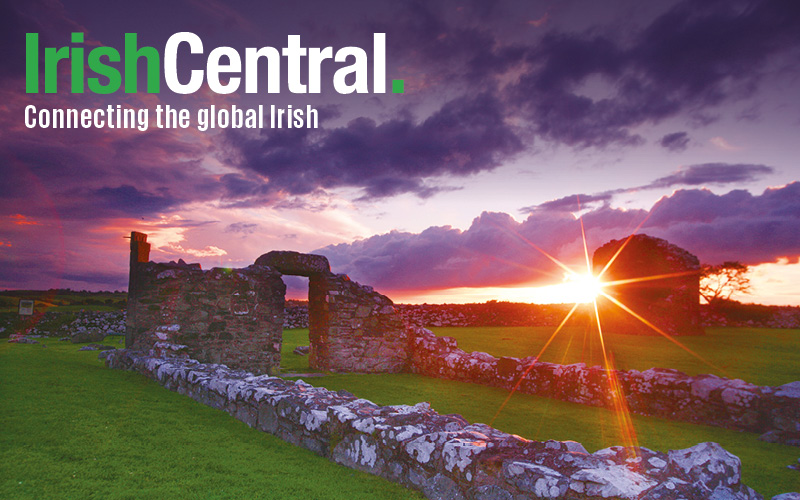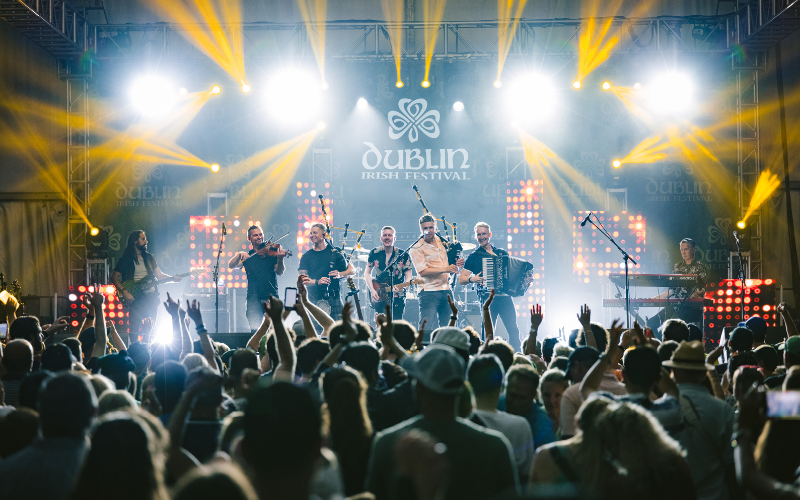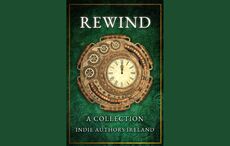The Ancient Order of Hibernians, founded in 1836 to combat bigotry against the Irish, state removal of Col. John Fitzgerald’s name on St. Patrick’s Day by City Council of Alexandria, Virginia, sparked action.
In response to the recent Irish Voice article “Removing Irish slave owner’s name from Virginia Park - should we really remember this man?”, concerning the efforts of the Ancient Order of Hibernians (AOH) to restore the name of Irish immigrant Col. John Fitzgerald to a park in Alexandria, Virginia which until recently commemorated him, there are several key missing details and misleading statements which for the sake of accuracy and fairness need to be corrected or clarified. In fairness, much of the fault lies with the original Washington Post story used as a reference for this article which was very selective in its reporting of facts. However, we are both perplexed and disappointed that the writer for Irish Voice did not take the opportunity to contact the AOH to validate the facts and independently ascertain the AOH side of the story.
First and foremost, as the IrishCentral article notes, the Ancient Order of Hibernians was founded in 1836 to combat bigotry against the Irish, a mission which the Order is still sadly called on to fulfill even today. Slavery is, and sadly in some parts of the world continues to be, a universal stain on the history of mankind. To suggest that the AOH would seek to pay tribute to the act of a person owning another individual is an insulting inaccuracy.
Before speaking out against the removal of Col. Fitzgerald’s name from the park we did our due diligence and consulted several biographies. These included articles on the U.S. Government’s National Park Service websites and the Alexandria Historical Society, detaining the life and career of Col. John Fitzgerald. In none of the biographies consulted was there any note of Fitzgerald owning slaves.
What we did find in the sources consulted was that John Fitzgerald was an immigrant from County Wicklow to Colonial Virginia, arriving with little other than his drive and determination. He quickly established himself as one of the colony’s leading businessmen and the fledgling city of Alexandria as a center of commerce. Fitzgerald’s warehouse still stands as one of Alexandria’s oldest buildings.
Yet, when America decided to strike for freedom, Fitzgerald risked all in joining his adopted country’s fight for independence. He fought in many of the key battles of the Revolution, becoming a trusted Aide-de-Camp to General Washington. A wound sustained at the Battle of Monmouth forced him to leave the Continental Army. However, even as a civilian he remained true to his country’s defense. When an approaching British fleet threatened to raid Alexandria, Fitzgerald organized the city’s defenses to such an extent that the British aborted the landing; likely saving the city from being sacked and destroyed.

"A wound sustained at the Battle of Monmouth forced him to leave the Continental Army."
Fitzgerald founded Virginia’s first Catholic Church and was elected as Alexandria’s mayor at a time when Catholics had few friends in America. This is the man and his accomplishments which the AOH felt were abused when the City Council removed his name from Fitzgerald Square Park without explanation.
What has been understated to the point of nonexistence in coverage of this story is the “curious” manner in which the City Council of Alexandria proceeded in removing the name of Col. Fitzgerald from the park. It should be noted that since its designation as Fitzgerald Square some six years ago there has been no mention of Col. Fitzgerald’s possible slave ownership. Even when the park was inexplicably renamed on, St. Patrick’s Day, March 17 of this year there was no mention of records indicating Col. Fitzgerald’s owned slaves or the now cited anonymous “concerns” as the motivation for the name change. The allegations of slave ownership as justification for the name change only surfaced in reaction to the concern of the AOH to the removal of Col. Fitzgerald’s name from the public space. This should raise some questions as to if this was indeed the original motivation. If concerns of slave ownership were what prompted changing the name of the park, would it not have been natural to bring that to public attention and begin the public conversation before changing the name, rather than stripping Fitzgerald’s name with no explanation hoping no one would notice? It must also be noted that to change the name of any commemoration to an Irish American on March 17th indicates an insensitivity that is almost provocative.
Finally, there is debate on the interpretation of records being used to implicate Col. Fitzgerald as a slave owner in the attempt to justify the removal of his name from the park. Fitzgerald regularly acted as an agent for indentured servants, which, as has been noted in numerous articles in the Irish Voice and IrishCentral, is significantly different from slavery as it is a contract where a period of service is exchanged for the payment of passage to America or other debts. An April 1784 shows Fitzgerald was acting as an agent for two shiploads of indentured servants from County Cork. The legal status of Indenture Servants was ambiguous and census records imprecise; It is both possible and plausible that Col. Fitzgerald’s “slaves” may have in reality been Irish redempters. Again, these are the sort of discussions which should have been fully vetted before a decision was made to remove Col. Fitzgerald’s name from the park.
As Irish Voice writer Tom Deignan notes, the Hibernians were formed to protect the rights of Irish Immigrants and their heritage. The surreptitious stripping of Col. Fitzgerald’s name from the park commemorating his legacy is finding him guilty without his day in the court of historical inquiry. The legacy of Col. Fitzgerald and his importance in American history deserves better than a knee-jerk reaction to alleged anonymous concerns; even long dead Irish immigrants deserve the presumption of innocence.
What is clear as regards the naming of Fitzgerald Square is there needs to be discussion that is both historically factual and culturally sensitive, without the inaccurate titillating spin that attempts are being made to honor a person for owning slaves.
Read more: Irish, Catholic American - why I’m part of the Ancient Order of Hibernians
* Neil Cosgrove is the AOH National Anti-Defamation Chairman. For more information on the Ancient Order of the Hibernians visit aoh.com.




Comments